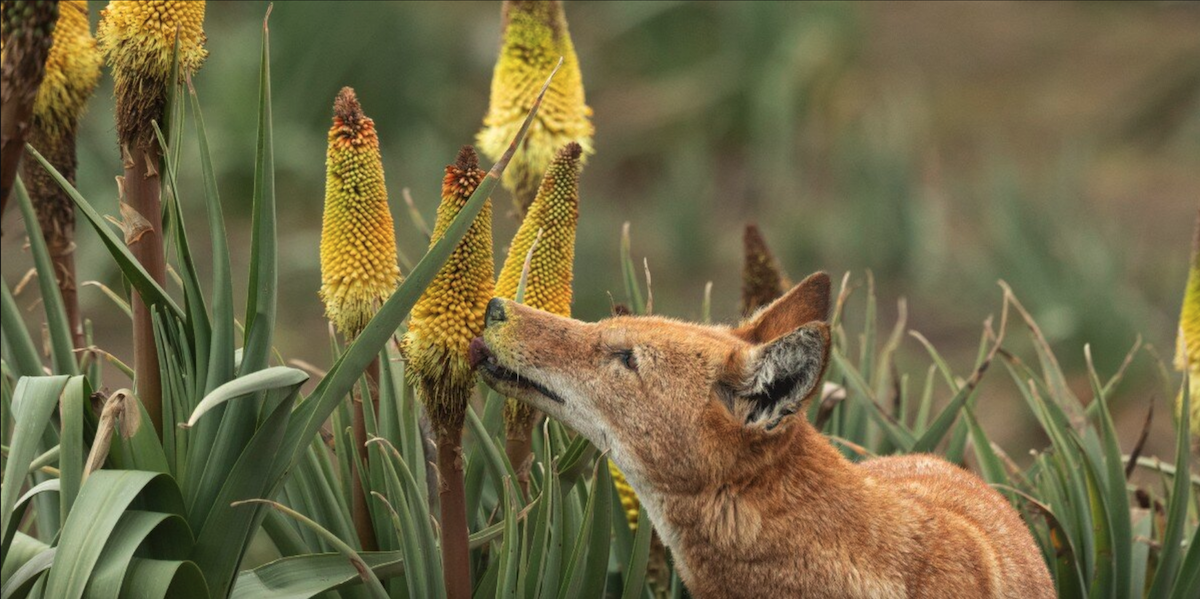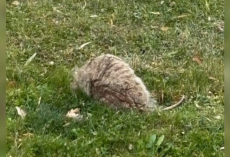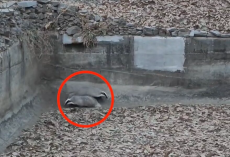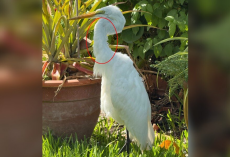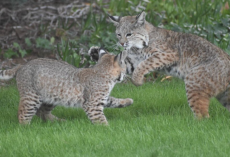After a hearty meal, there’s nothing quite like a little dessert — and apparently, that’s not just a human habit.
Deep in the Ethiopian Highlands, scientists have discovered that one of the world’s rarest and most elusive predators has an unexpected sweet tooth. The Ethiopian wolf — a striking, cinnamon-colored canid known for hunting rodents in the alpine grasslands — has been caught indulging in something surprising: flower nectar.
It all began years ago when Claudio Sillero, conservation biologist and founder of the Ethiopian Wolf Conservation Programme (EWCP), spotted a curious behavior through his binoculars. Among the rocky slopes, he saw an Ethiopian wolf gently licking the nectar from a red hot poker flower.
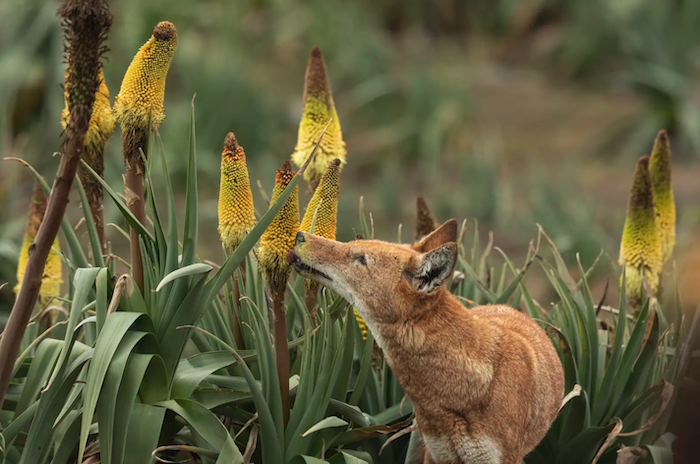
Local children in the region often drink nectar from these vibrant, torch-like flowers. Having tasted it himself, Sillero knew how sweet it was — but he was mystified. Why would a carnivore, built for hunting and meat-eating, be sipping flower nectar?
Capturing this strange behavior on camera, however, would take years. Wildlife photographer Adrien Lesaffre spent two patient years in the highlands documenting Ethiopia’s shy and skittish wolves. At last, he succeeded in getting rare, close-up photos of them visiting the flowers.
When University of Oxford ecologist and EWCP senior researcher Sandra Lai saw the images, she was captivated — and intrigued. Her team dove into the mystery, and their research soon revealed something amazing: these nectar-sipping sessions weren’t a one-time quirk. For Ethiopian wolves, this sweet snack is a regular part of life.
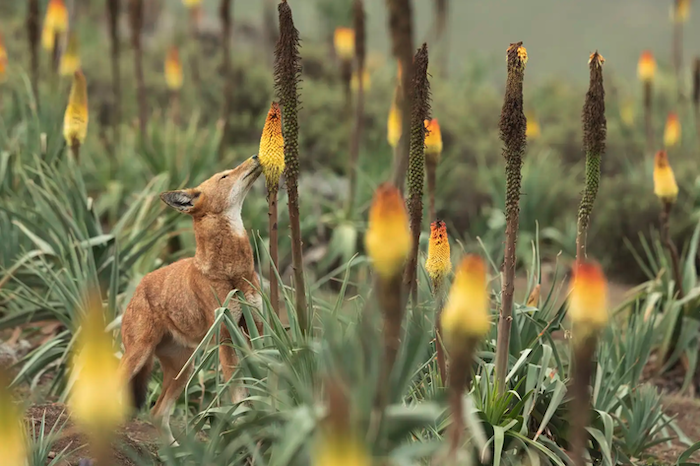
“They go from flower to flower, only spending a few seconds at each — just like bees,” Lai explained.
The nectar doesn’t provide the wolves with significant calories or nutrition. It seems they simply enjoy the taste. Scientists call this behavior the “dessert hypothesis” — the idea that, like humans, some animals might just crave a little sweetness now and then.
“Our observations suggest that, like people, some wolves have more of a sweet tooth than others,” Lai said. “It’s striking to see how genuinely pleased they look while licking the nectar.”
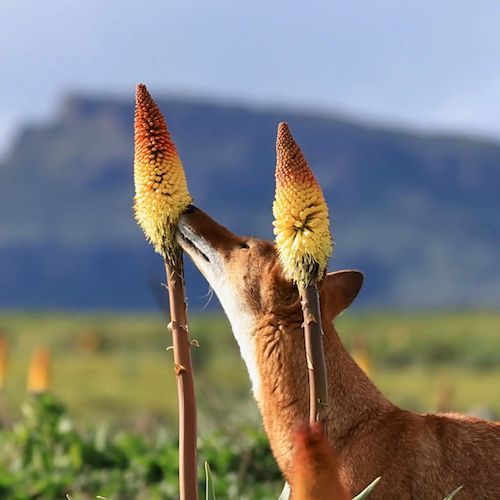
Ethiopian wolves are currently the only large carnivores ever documented consuming flower nectar, making this a rare and fascinating glimpse into their behavior. Since both the wolves and red hot poker flowers are unique to the Ethiopian Highlands, it’s a special interaction found nowhere else on Earth.
Even more surprising? As the wolves dip their noses into each bloom, they get dusted with pollen — raising the possibility that they might be acting as accidental pollinators.
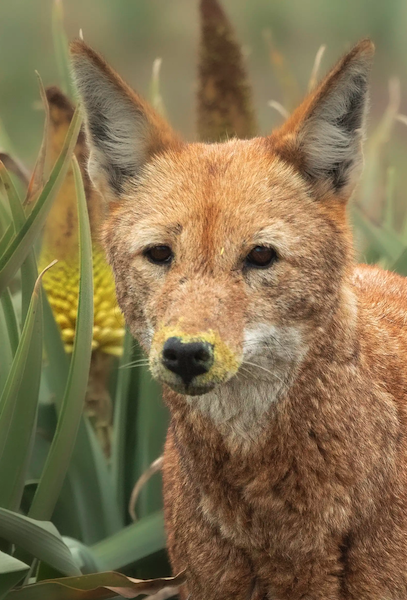
But while this delightful discovery offers new insight into these charismatic animals, it also highlights how fragile their world is. Fewer than 500 Ethiopian wolves remain in the wild, making them one of the most endangered canids on the planet. Their Afroalpine habitat — and all the strange, beautiful relationships it holds — is vanishing.
“I always say this interaction is so unique, it’s worth preserving,” Lai said.
To learn more about the Ethiopian Wolf Conservation Programme or to support their vital research and protection work, visit their website. If you'd like to support their research and conservation efforts, you can make a donation here. To support Adrien Lesaffre, check out his website here and his photo books here.

